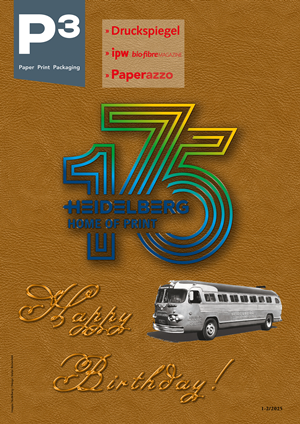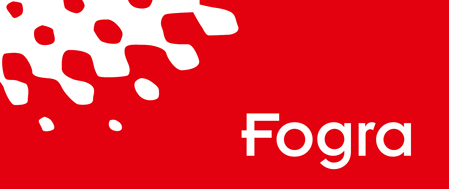P3 1-2/2023 en
Better Paper Recycling
DBU Project Develops Innovative Dry Processing
Standards
Coated paper products, which are also made of other materials such as plastic, cannot be processed with current recycling processes, or only with difficulty. The new “dry defibration” technology aims to change that. The German Federal Environmental Foundation (DBU) funded the development of this innovative process.
Paper plates, tickets or disposable drink cups are wet-resistant and consist of paper and other materials such as plastic. That's why they don't belong in the waste paper – or maybe they will soon? In a project funded by the German Federal Environmental Foundation (DBU), the company TBP Future from Moosburg in Bavaria has developed a new technology to be able to efficiently recycle such paper products in the future - in line with the global Global Recycling Day campaign.
According to the paper industry, about 23 million tons of paper are produced in Germany every year - around 18 million tons of which are made from waste paper. According to DBU General Secretary Alexander Bonde, this is a pleasing value. “But we use more raw materials than our planet can sustain,“ says Bonde. “The more supposed waste we convert back into valuable materials for new recycling products, the better it is for the environment, climate and people.”
Coated paper products are difficult to recycle
Coated paper products pose a problem for current recycling processes. “Usually, paper is mixed with water and a pulp is formed, which can then be processed into new paper,” explains Dr. Michael Schwake, DBU expert for environmental technology. “So-called paper that is difficult to fiber and wet-strength, such as food packaging or wallpaper, does not dissolve so easily in water.” This is why the conventional process does not work, or only with immense additional energy consumption or the use of chemicals. In addition, such products are often made from primary fibers, “not from waste paper, but from valuable raw materials that can often be recycled and reused - with the right technology,” says Schwake.
Dry pulping: New technology for paper recycling
TBP Future has developed such a technology in cooperation with the Technical University of Dresden and the mechanical engineering company Gotic in a DBU project. With the help of a rotor, pre-shredded paper shreds are broken down into individual fibers within a few seconds by air vortices, among other things. Other components such as plastics are separated from the cellulose fibers and can be sorted out. This creates a kind of fiber wool that can then be compressed and further processed. “Dry defibration - the so-called dry pulping - does not require any chemicals or water, and there is no environmentally harmful waste water,” says Dr. Tilo Gailat, CEO of TBP Future. According to him, dry fibers can improve paper and board properties and increase productivity. In addition, the process consumes less energy than comparable conventional wet processing.
Dry fibers can replace primary raw materials - mobile test systems in use
According to Gailat, numerous tests have shown that the dried fibers are “unreservedly suitable for the re-production of paper or other fiber-based products such as packaging and can thus replace primary raw materials”. The project team assumes that the new dry process will enable them to recycle at least 1.5 million additional tons of paper per year in Germany alone and process them into new products. “This is a huge market that will continue to grow in the future - for example due to the increasing share of paper packaging as an environmentally friendly substitute for plastic,” says Gailat. Two mobile test systems are currently in use, with which “paper manufacturers or recycling companies can try out dry fiberization themselves,” says Gailat. Several hundred tons of recycled fibers have already been produced in this way.
Digital raw material platform and new technology important contributions to circular economy
In addition, the project team is working on a digital raw materials platform with a recycling company in another DBU-funded project. This should offer a holistic logistics system, “from the collection of suitable paper fiber sources to processing and mediation to paper manufacturers,” says Gailat. In addition, the platform to be developed should contain an expert system - i.e. a computer program that uses artificial intelligence to select the optimal process parameters for the dry pulping process. According to DBU General Secretary Bonde, the combination of innovative processing technology with a digital platform solution has “high potential to conserve wood resources, increase the proportion of waste paper and promote a comprehensive circular economy in which recyclable materials are processed and recycled as often as possible.” Overall the DBU is funding both projects with around 640,000 euros.
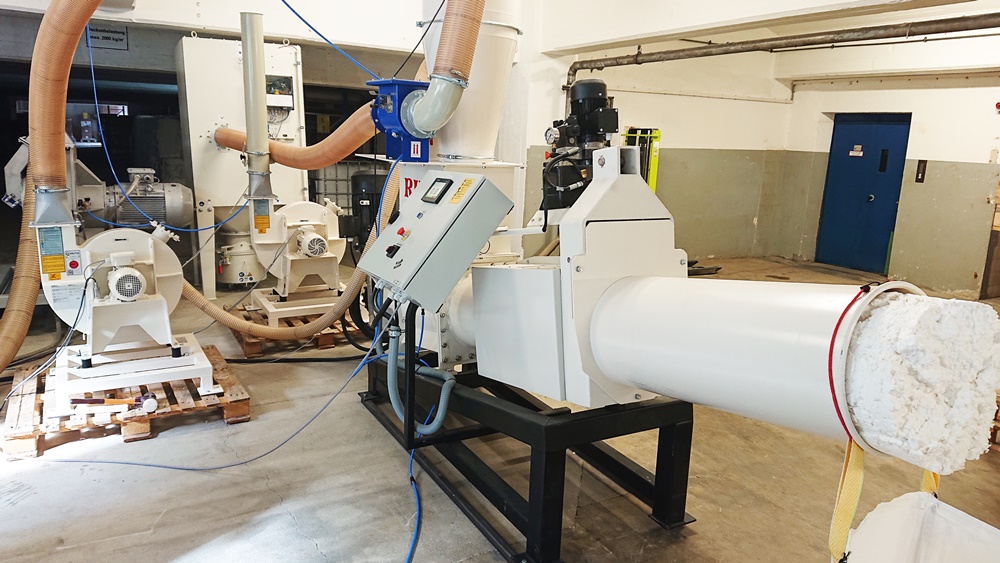
In a project funded by the German Federal Environmental Foundation (DBU), the company TBP Future has developed an innovative recycling process for so-called wet-strength paper that is difficult to fiberize. With the mobile system, paper manufacturers and recycling companies can try out the technology themselves.
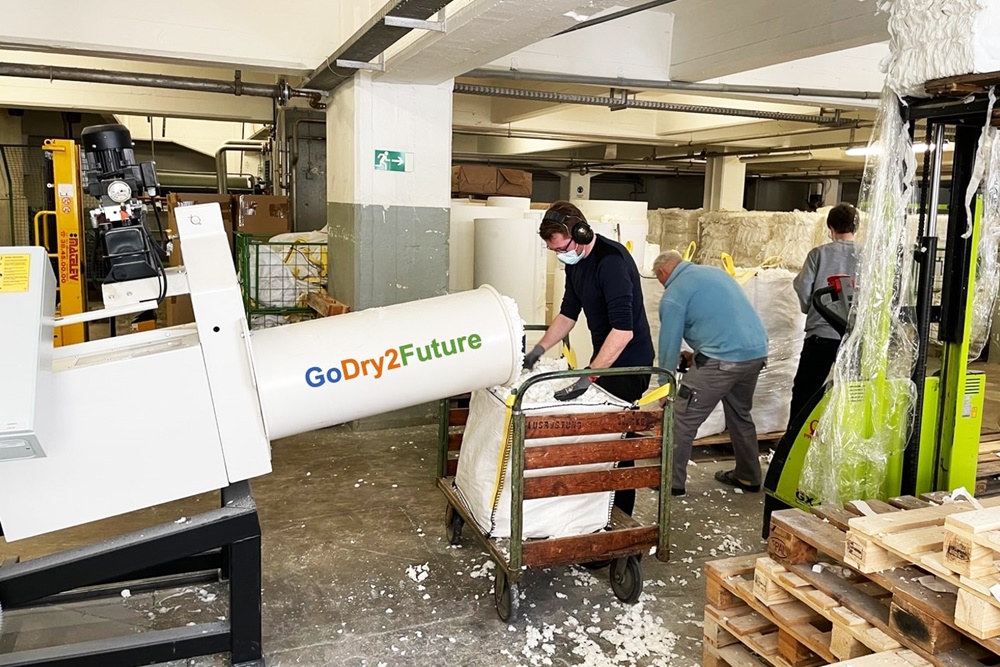
During dry defibration, pre-shredded paper shreds are broken down into individual fibers within a few seconds. This creates a type of fiber wool that can be processed into new paper or other fiber-based products. The German Federal Environmental Foundation (DBU) funded the development of the new process.
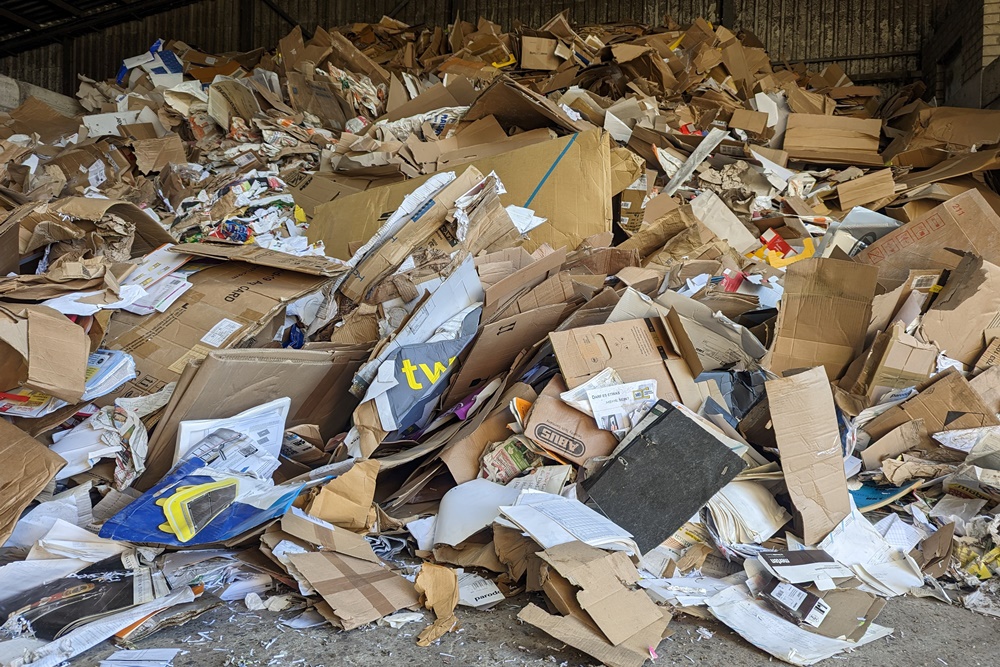
Obstacles to paper recycling: If products such as tickets or packaging also contain plastic or other materials, recycling is not easily feasible. Dry defibration, a new process funded by the German Federal Foundation for the Environment (DBU), is intended to remedy the situation.
Editor: sbr
Images: TBP Future GmbH [1,2]; Wiebke Lenz/DBU [3]

